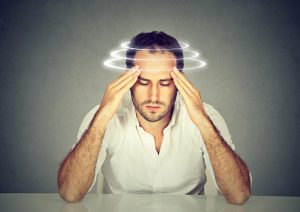
Estimates show that one in every 1,000 people has Meniere’s disease. It can occur at any age but is most commonly found in people over the age of 40. The National Institute of Deafness and Other Communication Disorders estimates that 615,000 Americans have Meniere’s disease. The disease got its name from Prosper Meniere, a French doctor who was the first to report vertigo as an inner ear disorder in 1861.
What causes Meniere’s disease
Although the exact cause of Meniere’s disease is not fully understood, it is believed that abnormal fluid build-up in the inner ear is the cause. Factors that could contribute to Meniere’s disease and fluid in the inner ear are:
- Improper fluid drainage
- Abnormal immune response
- Allergies
- Viral infection
- Genetic predisposition
- Head trauma
- Migraines
Due to the nature of the condition, Meniere’s disease may also be a combination of factors.
Meniere’s disease symptoms
Signs and symptoms of Meniere’s disease include:
- Reoccurring episodes of vertigo—feeling as if you are spinning
- Hearing loss
- Ringing in the ear, or tinnitus
- Feeling of fullness in the ear
Signs and symptoms of Meniere’s disease may come in episodes—it could be worse on some days and improve on others.
Treating Meniere’s disease
Treatment for Meniere’s disease revolves around treating the symptoms. For example, medications can be prescribed to decrease vertigo and tame the symptoms, such as nausea and vomiting. Medications common for motion-sickness and anti-nausea medications may be prescribed for vertigo.
Your doctor may also prescribe a diuretic in order to remove excess fluid from the body. For some, a diuretic is effective at minimizing episodic symptoms and their severity.
There are also non-invasive treatments, such as:
- Rehabilitation to help with vertigo and improve balance
- Hearing aids
- Use a Meniett device, which is put into the ear and applies pressure to improve fluid exchange
Surgery and middle ear injections can be utilized as well to reduce ringing and improve vertigo.
Meniere’s disease home remedies and lifestyle tips
Some home remedies and lifestyle changes that can help relieve the symptoms of Meniere’s disease are:
- Following a low-sodium diet
- Maintaining healthy glucose levels by balancing carbohydrate and protein intake
- Drinking enough water
- Avoiding highly processed foods like sugar substitutes and MSG
- Avoiding foods that can cause inflammation
- Cutting back on caffeine and nicotine, as well as learning to manage stress with healthy coping mechanisms
Make sure you take your symptoms seriously and rest after attacks. If you feel dizzy, sit or lay down to prevent falling. Also be aware that you may lose your balance, so take precautions against injuring yourself in a fall. It is best to avoid driving or operating heavy machinery, as these symptoms can affect your vision and make the activities hazardous for you and those around you.
Related: Natural remedies and diet for Meniere’s disease